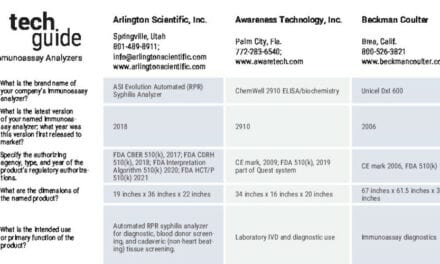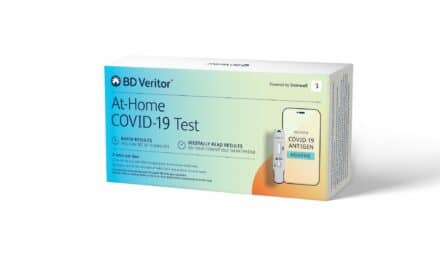FDA has granted premarket approval to the GSP Neonatal Creatine Kinase–MM (CK-MM) kit from PerkinElmer, Waltham, Mass. The test is the first commercially available assay for screening newborns affected by Duchenne muscular dystrophy (DMD).
DMD is an X-linked recessive disease and the most prevalent type of muscular dystrophy, affecting approximately 1 in 5,000 live male births. The disorder is caused by mutations in the dystrophin gene, which supports the mechanical strength of muscle fibers. Without dystrophin, a patient’s muscles progressively weaken and deteriorate, ultimately resulting in premature death from poor respiratory function and cardiac failure.
Although there is no known cure for DMD, recent studies have demonstrated the importance of early intervention and treatment. In particular, corticosteroid treatments have been proven to support muscle repair and reduce detrimental side effects in infants, underscoring the need for DMD testing at the earliest point in life.1
PerkinElmer’s kit is specifically designed for screening newborn babies by measuring CK-MM—the predominant isoform in skeletal muscle cells and most specific to skeletal muscle damage—in dried blood spot samples.2 CK-MM levels are typically elevated in DMD patients, as the degeneration of skeletal muscle cells causes the release of CK into the bloodstream.
“It is a cost-effective way to screen for DMD with a two-tier testing approach,” says Mei Baker, MD, FACMG, professor of pediatrics and codirector of the newborn screening laboratory at the University of Wisconsin School of Medicine and Public Health. “The first tier CK-MM assay allows identification of infants with excess muscle damage at birth, and the second tier DMD gene analysis would link the muscle damage to the genetic defect.”
“Screening newborns not only prevents DMD patients and their families from an unnecessary diagnostic odyssey, but also ensures timely treatment for a disease that could otherwise go undetected for years,” says Linh Hoang, MD, PhD, vice president for reproductive health at PerkinElmer. “By measuring the muscle-specific isoform, rather than total CK activity, PerkinElmer’s assay enables clinicians to identify babies with this condition faster and, most importantly, give them a better chance at improved health outcomes.”
For more information, visit PerkinElmer.
References
- Connolly AM, Zaidman CM, Golumbek PT, et al. Twice-weekly glucocorticosteroids in infants and young boys with Duchenne muscular dystrophy. Muscle Nerve. 2019;59(6):650–657; doi: 10.1002/mus.26441.
- Moat SJ, Korpimäki T, Furu P, et al. Characterization of a blood spot creatine kinase skeletal muscle isoform immunoassay for high-throughput newborn screening of Duchenne muscular dystrophy. Clin Chem. 2017;63(4):908–914; doi: 10.1373/clinchem.2016.268425.




